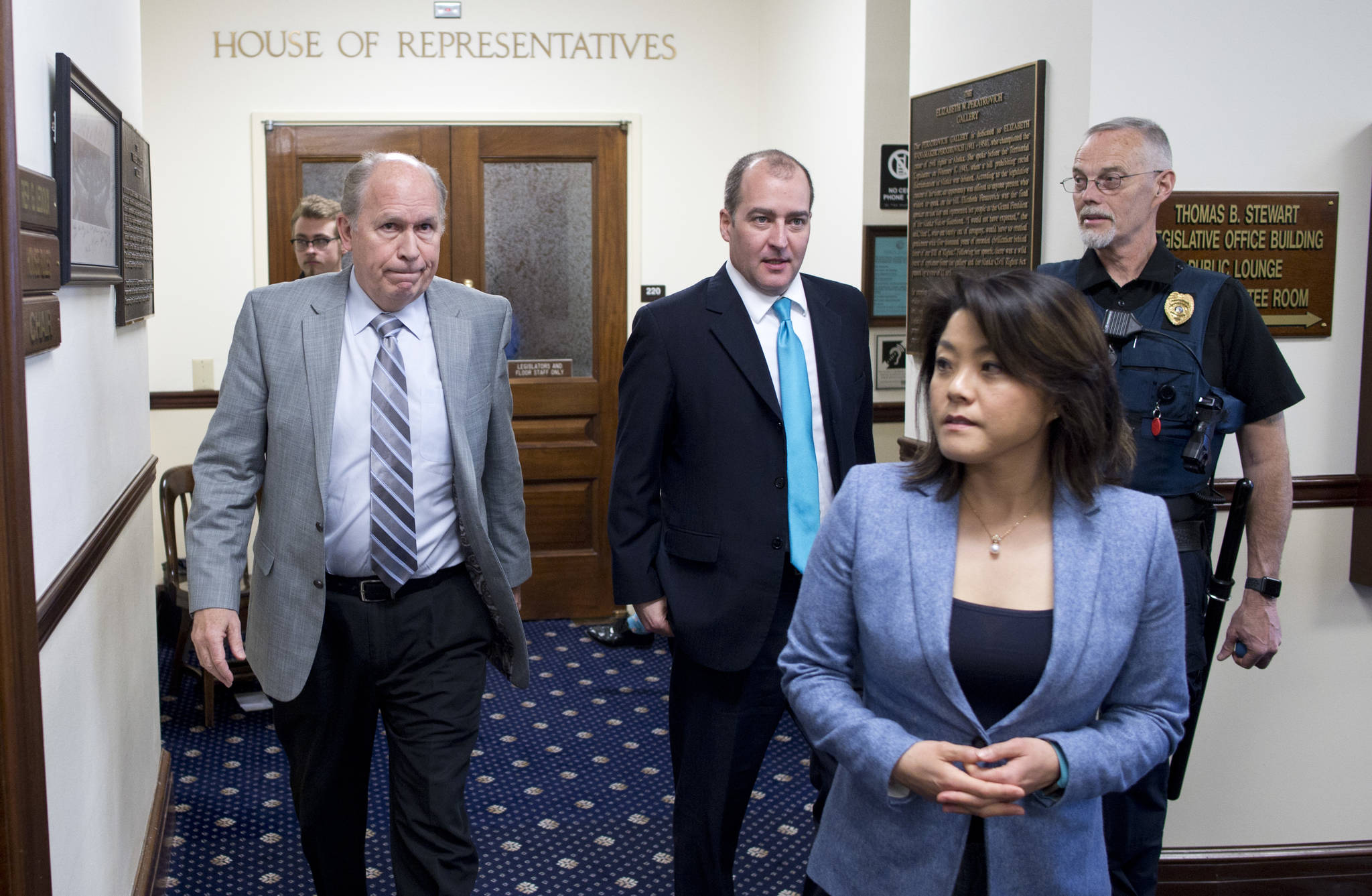For the first time in state history, the Alaska Legislature has chosen to spend the Alaska Permanent Fund on something other than dividends.
On Wednesday, the Alaska House of Representatives voted 22-18 to approve Senate Bill 26, which takes a portion of the Permanent Fund’s investment earnings and applies that money to Alaska’s $2.8 billion annual deficit. As a side effect, the Permanent Fund Dividend would drop to $1,250 starting this year.
“This gets us a long-term, sustainable fiscal plan,” said Rep. Neal Foster, D-Nome and co-chairman of the House Finance Committee.
The Alaska Senate voted 12-8 on a different version of SB 26 earlier this year, and negotiations are expected between the House and Senate to reconcile the differences.
One of the biggest of those differences is a requirement that the Legislature also enact “a broad-based tax, directed to education” and “the version of House Bill 111 that passes out of the House of Representatives.”
Rep. Ivy Spohnholz, D-Anchorage, said that requirement “is what actually allows me to vote for this in good conscience,” because if the clause holds up, it would mean the burden of resolving the deficit doesn’t come entirely from reduced dividends.
Under the “four-pillar” plan proposed by the coalition House majority, SB 26 would erase about $1.8 billion from the deficit. An income tax would generate anouther $650 million, and the remaining deficit would be solved with budget cuts – including from the state’s system of oil and gas drilling subsidies. That kind of comprehensive approach is seen as necessary to avoid a repeat of what happened last year.
In 2016, the Senate passed a Permanent Fund spending plan similar to this year’s version, but that bill died in the House Finance Committee. Republicans and Democrats on the committee said they couldn’t vote for the plan without additional reductions in the state’s drilling subsidies.
Without those reductions, lawmakers said at the time, they would effectively be taking money from the Permanent Fund and giving it to oil companies.
Seventeen Democrats, three Republicans and two independents voted for Senate Bill 26 in the House on Wednesday. All 18 members of the House’s Republican minority voted against it, and for a variety of reasons.
“SB 26 … it is a sustainable plan, but for big government,” said Rep. Lora Reinbold, R-Eagle River.
“There is basically nothing in this bill that I can support,” said Rep. Cathy Tilton, R-Wasilla.
House Minority Leader Charisse Millett, R-Anchorage, said she wanted to see more of the minority’s ideas incorporated into the proposal.
“I have no confidence in this piece of legislation. It’s bad for Alaska,” she said.
Rep. Lance Pruitt, R-Anchorage and a minority member of the House Finance Committee, wanted to see spending-cap language from the Senate’s version of SB 26 kept in the House version. That didn’t happen.
“It essentially has no effect to control us,” Pruitt said of the House’s version, “to control the Legislature and government from spending that money.”
The Senate had proposed a spending cap and a reduction in the draw from the Permanent Fund if oil revenue suddenly surges. The House version removes that spending cap and doesn’t reduce the draw as much, even if oil prices rise.
Randy Hoffbeck, the state’s revenue commissioner, warned that the House’s approach could make the state’s cashflow more volatile.
Rep. Mark Neuman, R-Big Lake, said he’s concerned about what will happen to the economy if dividends decline.
“I think that the people can spend that money a lot better than the government can,” he said.
He added that the state may have a deficit, but it can balance that deficit through further cuts, and the state’s remaining savings accounts can tide things over until the cuts are made.
“I do not see this as a crisis,” he said.
Members of the majority disagree.
The state’s principal savings account, the Constitutional Budget Reserve, could cover the deficit for two more years, but if no significant changes were made before that deadline, the state would be forced to turn to the Permanent Fund savings account that also pays dividends.
Without a deficit fix, dividends would decline, and the state would again be forced to cut its budget unless oil prices unexpectedly rebounded.
“I think we’ve cut enough,” said Rep. Justin Parish, D-Juneau, who pointed to studies from the Institute for Social and Economic Research.
That institute, at the University of Alaska Anchorage, forecast earlier this year that 33,000 jobs would be lost if the Legislature attempted to balance the budget through cuts alone.
If the Legislature fixes the dividend through PFD cuts and/or taxes, the state would lose about 25,000 jobs.
“At the crossroads we’re at right now, we have two options: we either go into a 10-year recession, or we stabilize the economy,” said Rep. Geran Tarr, D-Anchorage.
SB 26 returns to the Senate. Lawmakers there will vote later this week on whether to accept the changes made by the House.
They are expected to reject those changes, setting up a negotiation between the House and Senate on a final deal.
Contact reporter James Brooks at james.k.brooks@juneauempire.com or call 419-7732.

